A new doctor has discovered the potential of sericin gel in preventing skin aging caused by ultraviolet rays.
Located in Prof. Room. dr. I Gusti Ngoerah Gde Ngoerah, Lt. 4, Udayana University Faculty of Medicine Building, where the Doctoral Promotion exam was held offline with promovenda candidate dr. Fitria Agustina, Sp.KK., with a dissertation title; "Administration of 10% Sericin Gel Inhibits Decreased Expression of Type I Collagen Through Mechanisms of Increasing SOD Levels, TβRII Expression and SMAD2 Levels in the Skin of Male Wistar Rats (Rattus norvegicus) Exposed to UVB Light". In the concept of Anti-Aging Medicine, the aging process can be delayed, slowed down, even returned to its initial state of health as in a young and healthy physiological age.Aging of the skin caused by exposure to ultraviolet rays is known as photoaging with phenotypes such as wrinkles, irregular pigmentation, skin dryness, and decreased dermis thickness.Currently, various kinds of ingredients raw material was investigated because it has enormous potential to prevent photoaging effects, including sericin. Sericin is a by-product that is not used from the textile industry, namely degumming waste water from silkworm cocoons. Sericin is also a natural antioxidant with strong antioxidant activity. This study aims to find out whether the gel sericin 10% d can inhibit the decrease in the expression of type I collagen in rat skin exposed to UVB light and what is the mechanism.
An experimental test was carried out by administering 10% sericin gel to 40 male Wistar rats (Rattus norvegicus) exposed to UVB light. Mice were divided into 4 groups, namely control, UVB, UVB with basic gel, and UVB with 10% sericin gel. The treatment was carried out for 4 weeks and at the end of the study were examined for superoxie dismutase (SOD) levels, TGF-β type II receptor expression (TβRII), Smad2 levels, and collagen type I expression. The novelty of this study was the administration of sericin gel 10% inhibited the decrease in type I collagen expression through the mechanism of increasing SOD levels, TβRII expression, and Smad2 levels in the skin of male Wistar rats (Rattus norvegicus) exposed to UVB light. Administration of 10% sericin gel also increased SOD levels in vivo in line with the increase in SOD activity in in silico examination. This research must be continued to the clinical trial research stage to prove the effect of 10% sericin gel on the expression of type I collagen in humans who have not experienced photoaging and who have experienced photoaging.
The implication of this research is that sericin is a natural antioxidant with strong antioxidant activity. This strong antioxidant potential is based on a strong scavenging mechanism for free radicals
hydroxyl, superoxide, DPPH, increase the activity of antioxidant enzymes, prevent peroxidation of linoleic acid, as well as the ability to chelate transition metals such as copper, ferum, and zinc which is very significant. Administration of 10% sericin gel inhibited decreased expression of type I collagen through the mechanism of increasing SOD levels, TβRII expression, and Smad2 levels in the skin of male Wistar rats (Rattus norvegicus) exposed to UVB light, so that it could be used to inhibit the photoaging effect on the skin and as a basis for future clinical research.
The exam was led directly by the Coordinator of the Doctor of Medicine Study Program, Faculty of Medicine, Udayana University, Prof. Dr. dr. I Made Jawi, M. Kes.
with the testing team:
1. Dr. dr. Wimpie I Pangkahila, Sp.And-KSAAM (Promoter)
2.Dr. dr. Anak Agung Gde Putra Wiraguna, Sp.KK (K) (Co-promoter I)
3. Prof. Dr. dr. I Gusti Ayu Sri Mahendra Dewi, Sp.PA (K) (Co-promoter II)
4. Dr. dr. J . Alex Pangkahila, M.Sc., Sp.And (KSAAM) AIFO-K
5. Prof. Dr. dr. I Made Jawi, M. Kes
6. Dr. dr. I Wayan Weta, MS., Sp.GK
7. Dr. dr. I Wayan Putu Sutirta Yasa, M.Si
8.Dr. dr. Ni Made Linawati, M.Sc
9.Dr. err. nat. dr. Ni Nyoman Ayu Dewi, M.Sc
10.Dr. dr. Lili Legiawati, Sp.KK (K)
While academic invitations are:
1.Dr. dr. Ida Ayu Ika Wahyuniari, S.Ked., M.Kes
2.Dr. dr. I Gusti Nyoman Darmaputra, Sp.KK
3.Dr. dr. Ketut Kwartantaya Winaya, Sp.KK(K)
4.Dr. dr. Luh Nyoman Alit Aryani, Sp.KJ(K)
5.Dr. dr. Made Agus Hendrayana, M.Ked
In this exam, Dr. dr. Fitria Agustina, Sp.KK., was declared to have graduated as the 363rd Graduate Doctor of the Doctoral Study Program in Medical Sciences, Faculty of Medicine, Udayana University with the title of VERY SATISFACTORY
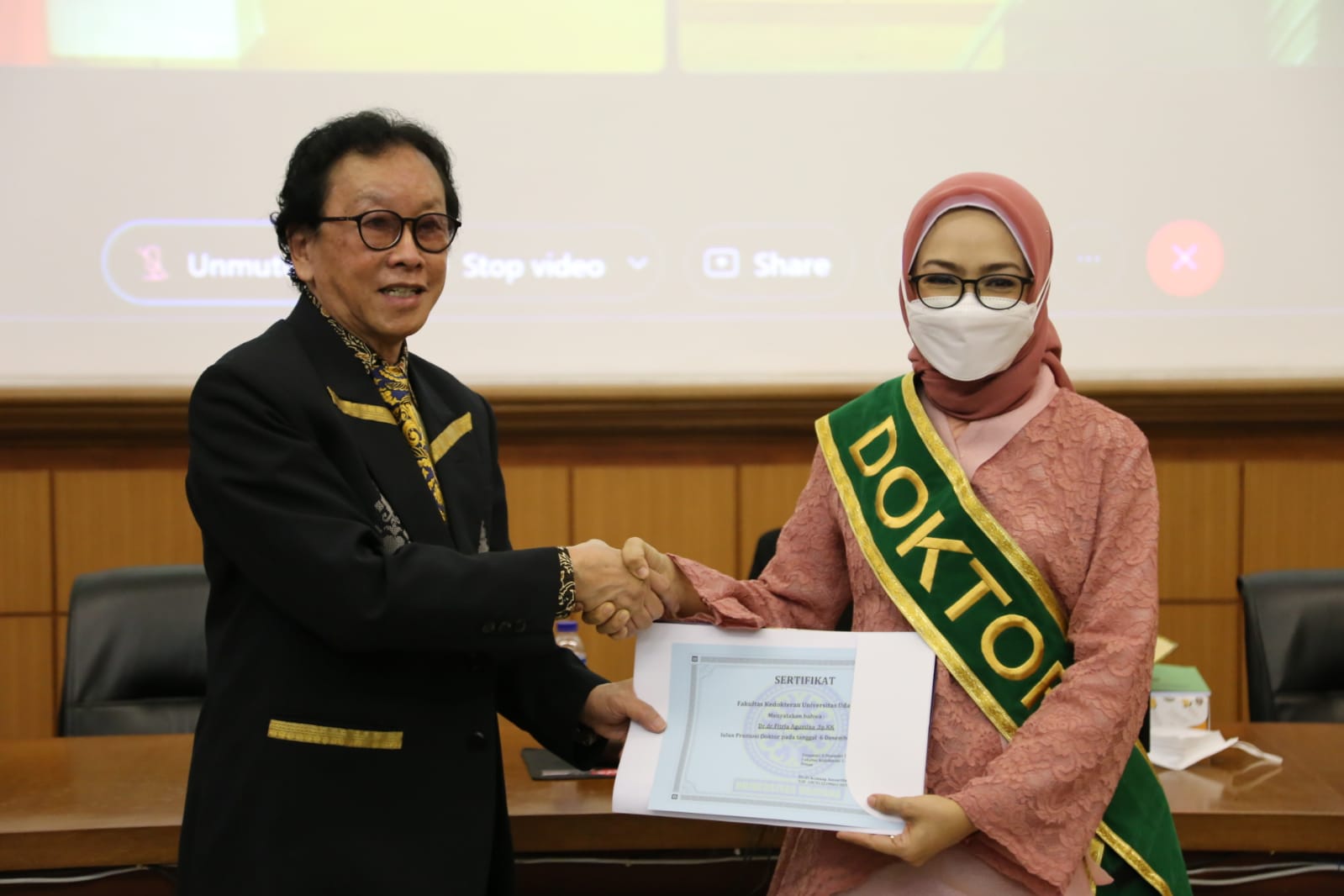
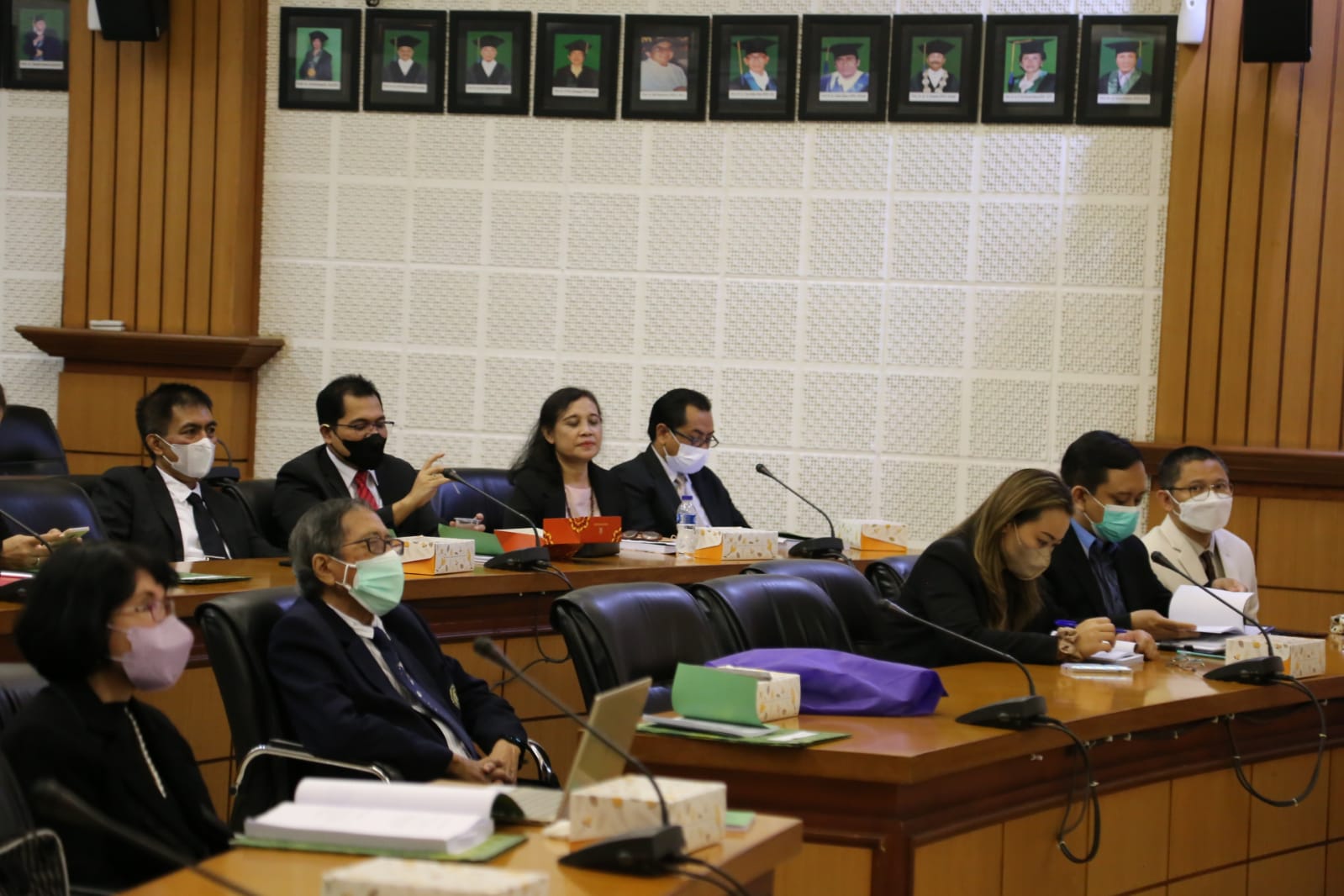
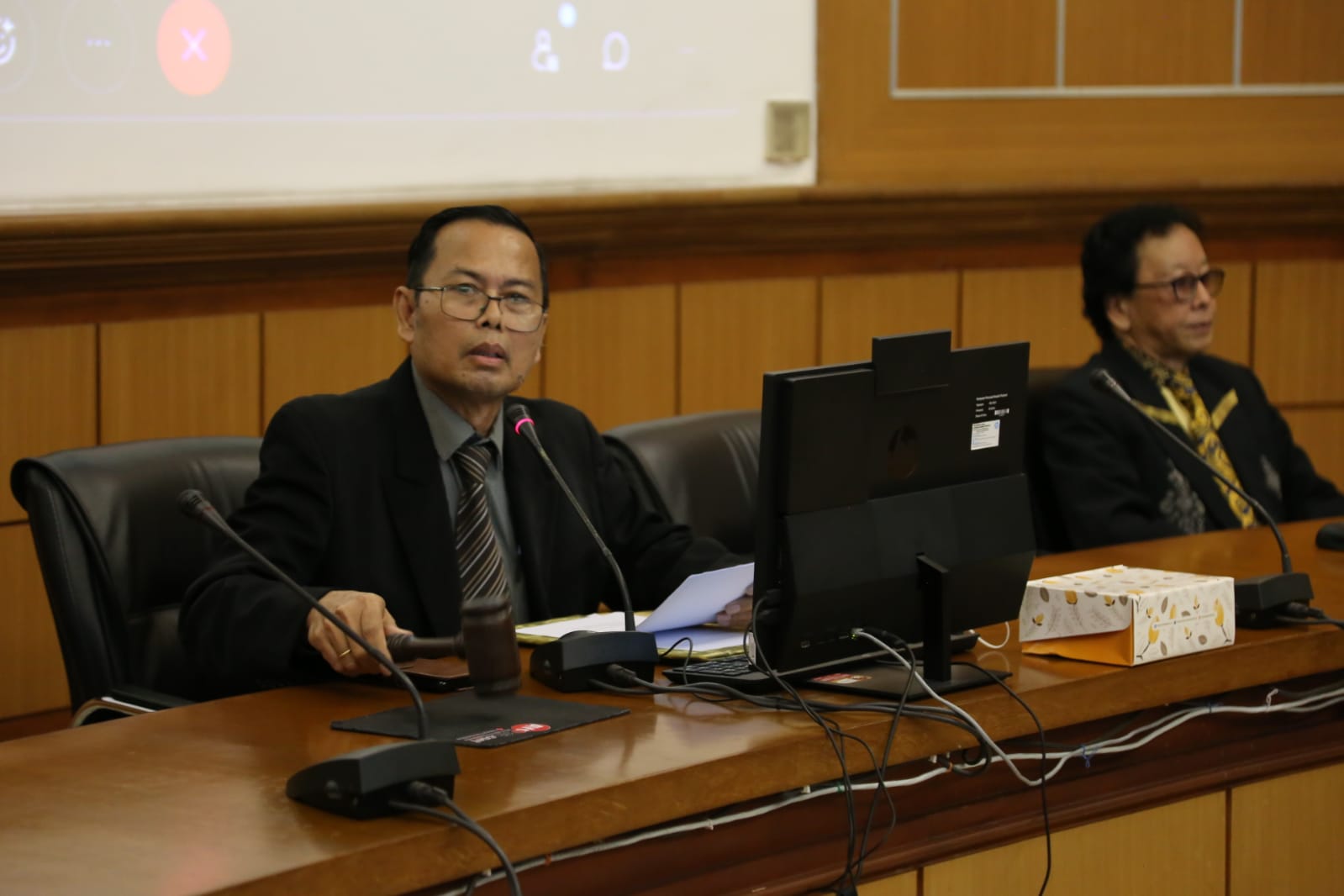
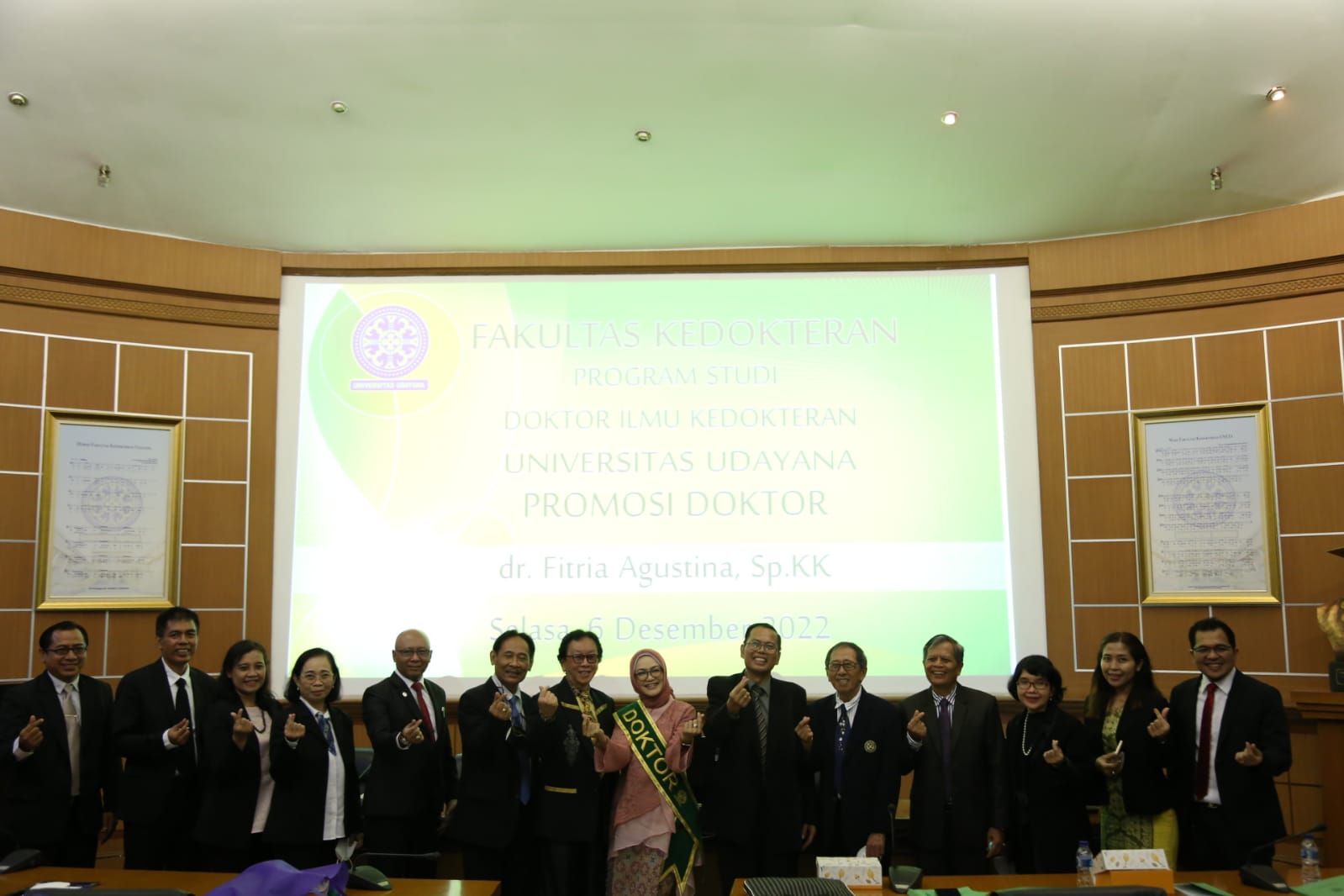
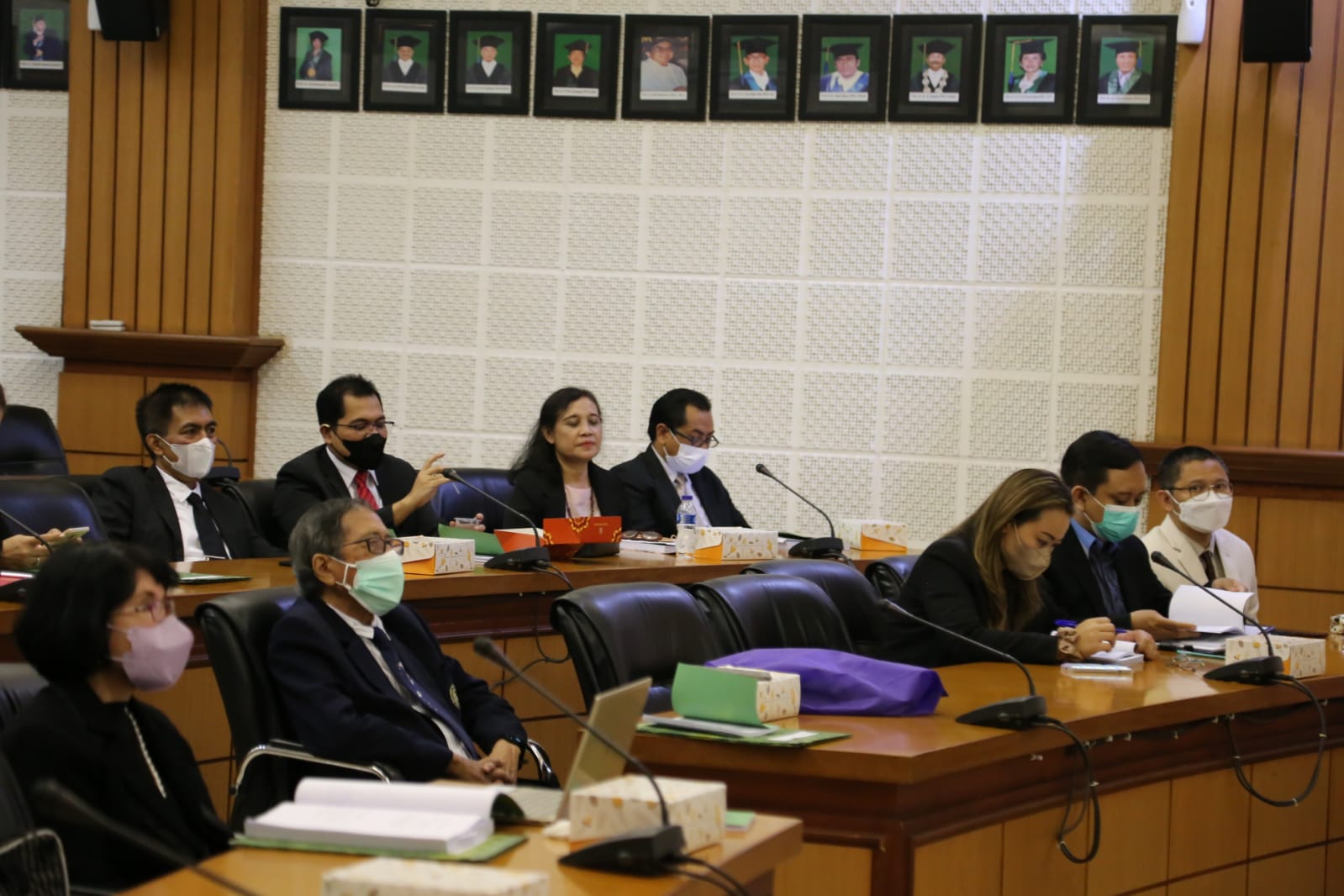
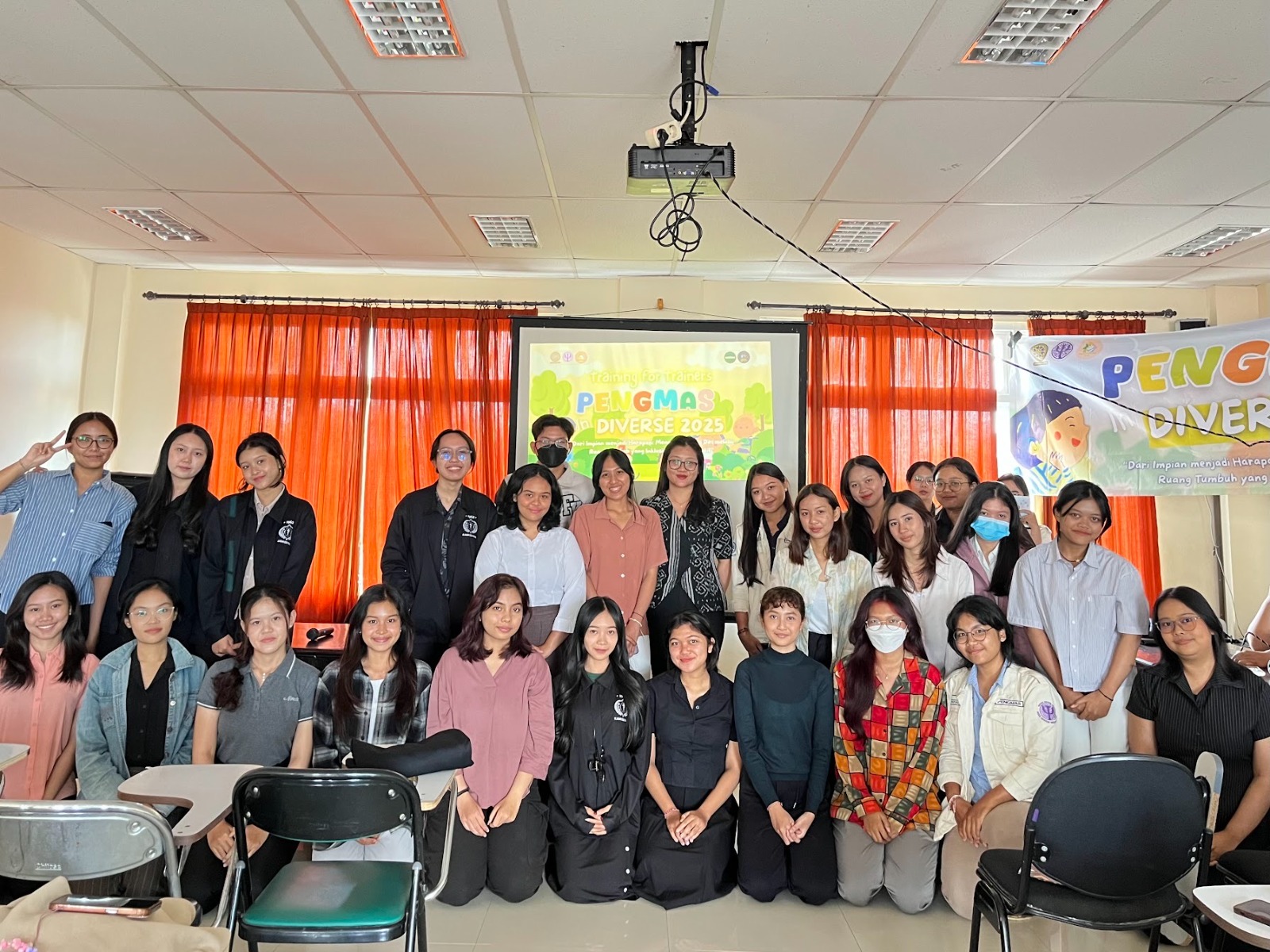
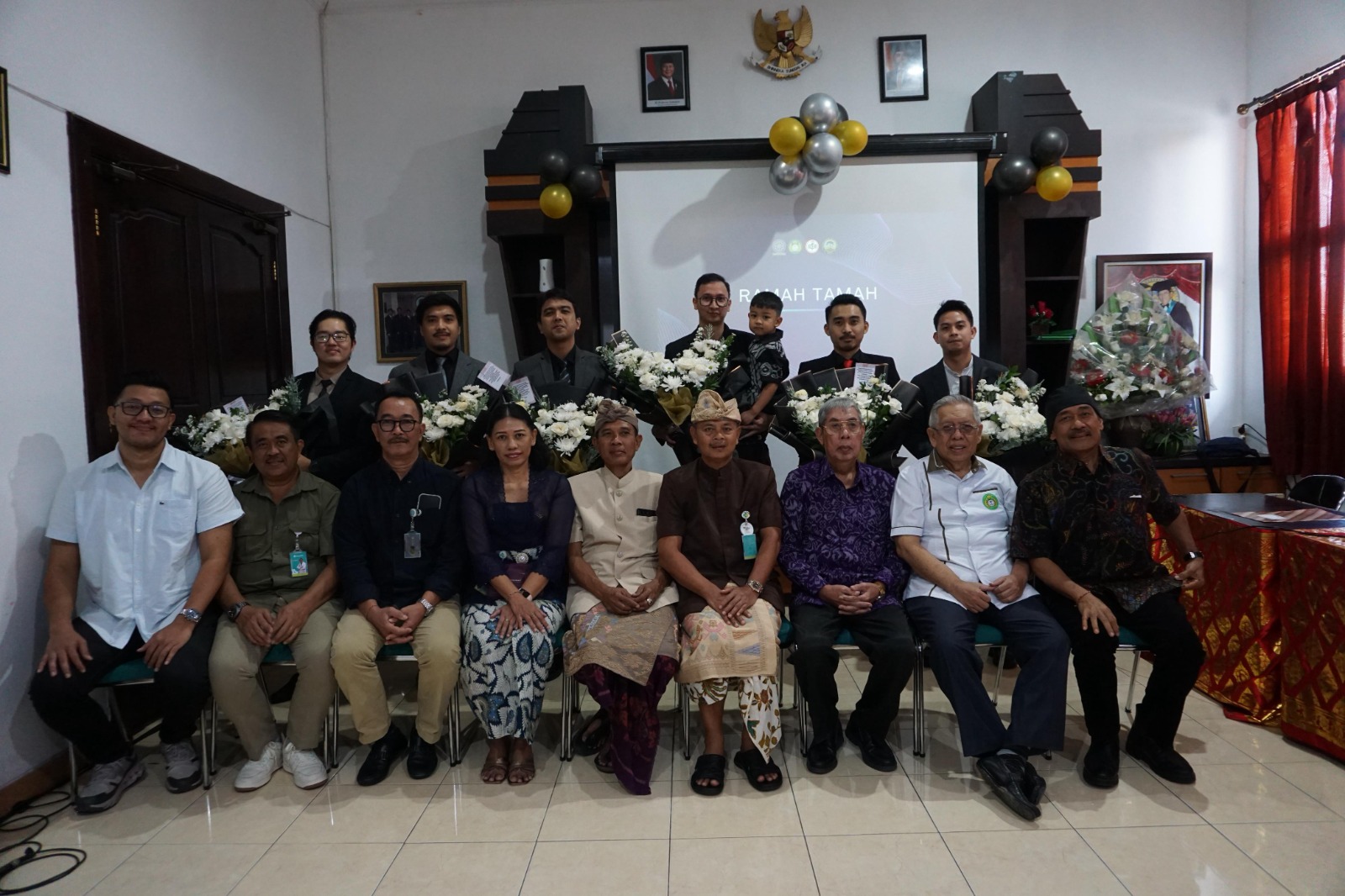
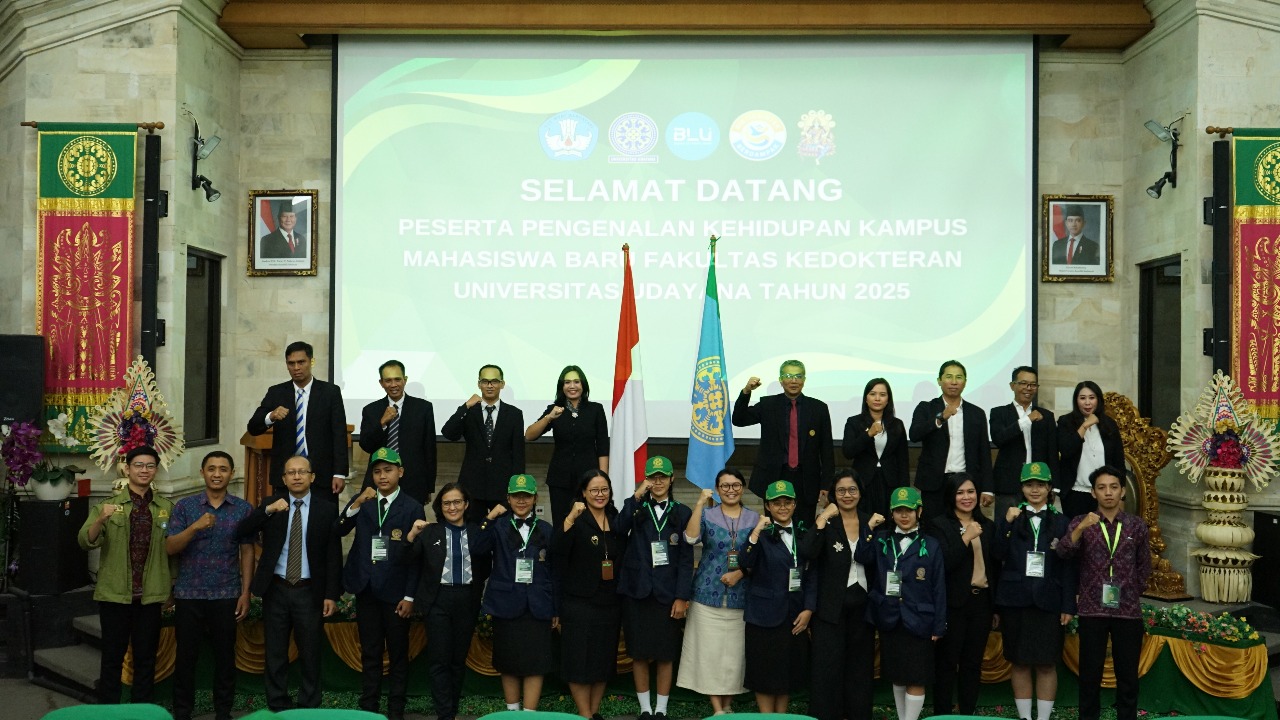
UDAYANA UNIVERSITY